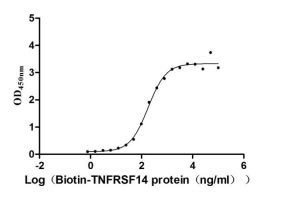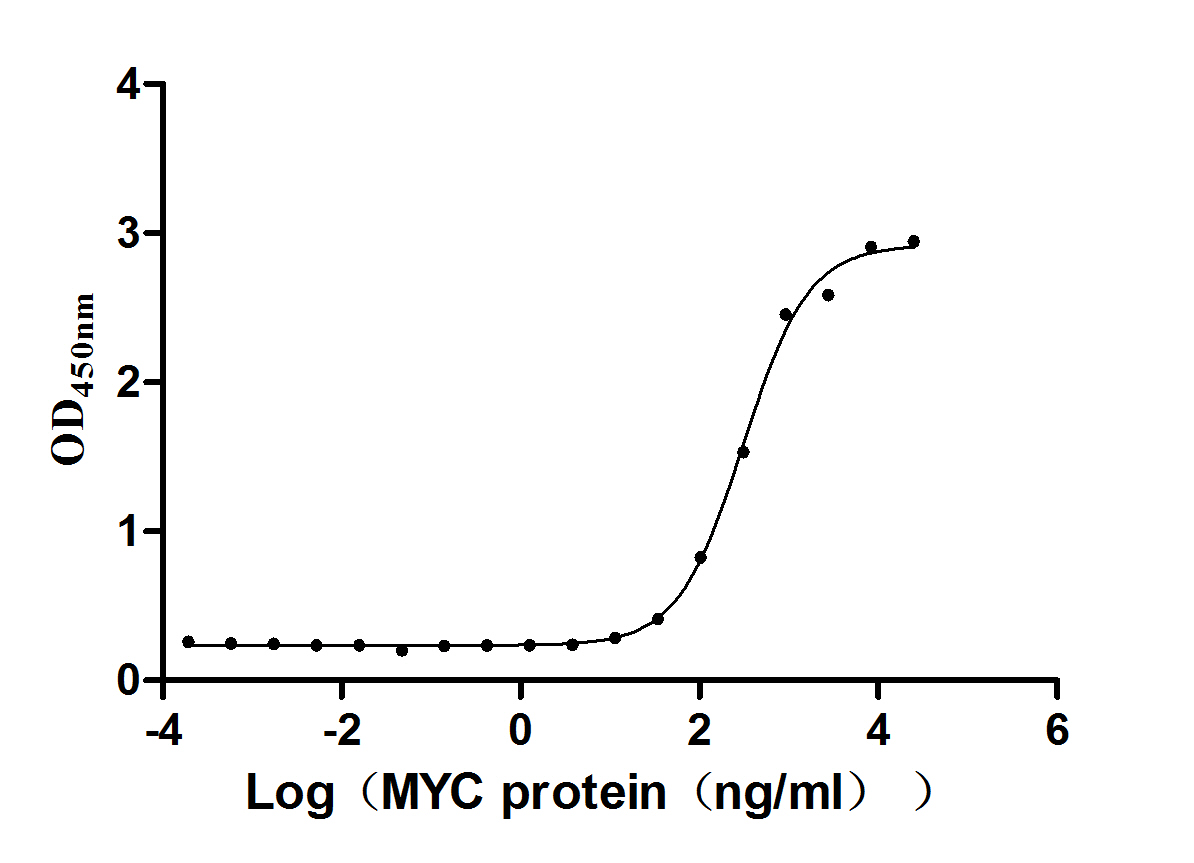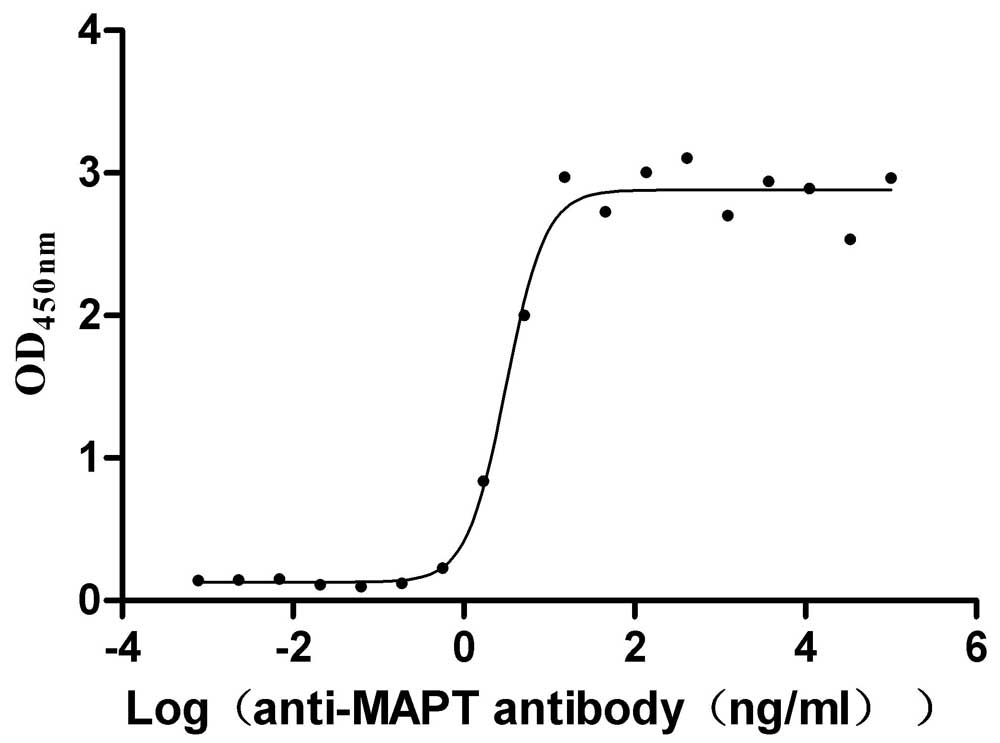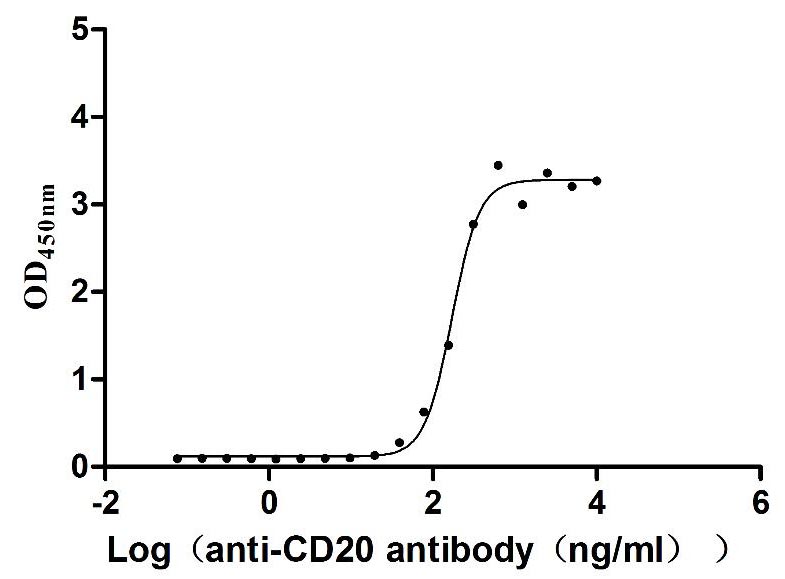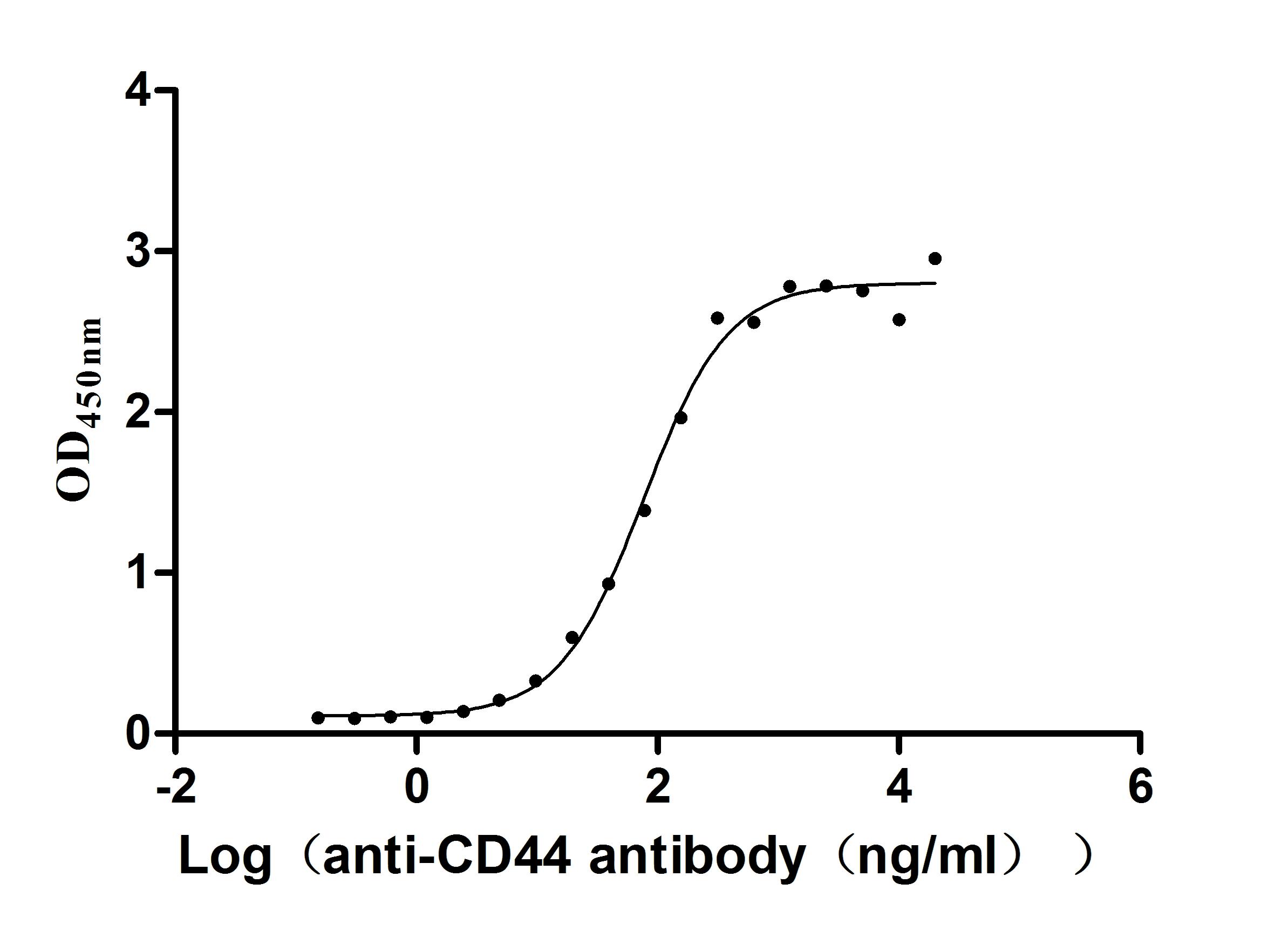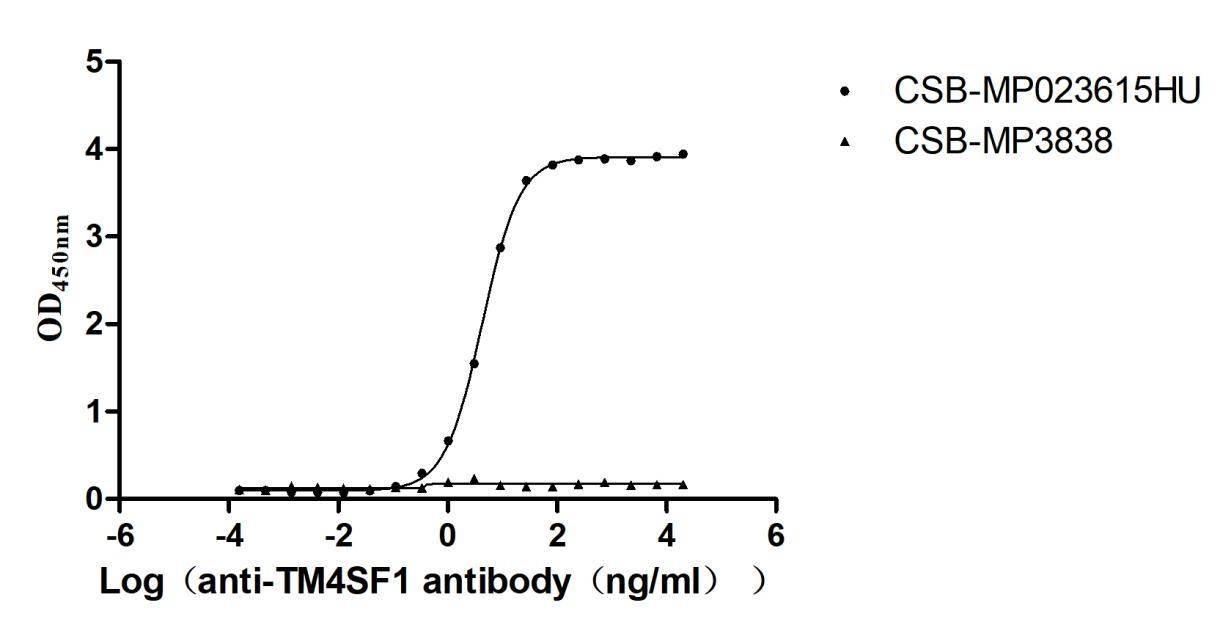Recombinant Rat Regenerating islet-derived protein 3-alpha (Reg3a)
-
中文名称:大鼠Reg3a重组蛋白
-
货号:CSB-YP019548RA
-
规格:
-
来源:Yeast
-
其他:
-
中文名称:大鼠Reg3a重组蛋白
-
货号:CSB-EP019548RA-B
-
规格:
-
来源:E.coli
-
共轭:Avi-tag Biotinylated
E. coli biotin ligase (BirA) is highly specific in covalently attaching biotin to the 15 amino acid AviTag peptide. This recombinant protein was biotinylated in vivo by AviTag-BirA technology, which method is BriA catalyzes amide linkage between the biotin and the specific lysine of the AviTag.
-
其他:
-
中文名称:大鼠Reg3a重组蛋白
-
货号:CSB-BP019548RA
-
规格:
-
来源:Baculovirus
-
其他:
-
中文名称:大鼠Reg3a重组蛋白
-
货号:CSB-MP019548RA
-
规格:
-
来源:Mammalian cell
-
其他:
产品详情
-
纯度:>85% (SDS-PAGE)
-
基因名:Reg3a
-
Uniprot No.:
-
别名:Reg3a; Pap2; Reg3; Regenerating islet-derived protein 3-alpha; REG-3-alpha; Islet of Langerhans regenerating protein 3; REG 3; Lithostathine 3; Pancreatitis-associated protein 2; RegIII; Regenerating islet-derived protein III-alpha; Reg III-alpha) [Cleaved into: Regenerating islet-derived protein 3-alpha 16.5 kDa form; Regenerating islet-derived protein 3-alpha 15 kDa form]
-
种属:Rattus norvegicus (Rat)
-
蛋白长度:Full Length of Mature Protein
-
表达区域:26-174
-
氨基酸序列EDSQK AVPSTRTSCP MGSKAYRSYC YTLVTTLKSW FQADLACQKR PSGHLVSILS GGEASFVSSL VTGRVNNNQD IWIWLHDPTM GQQPNGGGWE WSNSDVLNYL NWDGDPSSTV NRGNCGSLTA TSEFLKWGDH HCDVELPFVC KFKQ
-
蛋白标签:Tag type will be determined during the manufacturing process.
The tag type will be determined during production process. If you have specified tag type, please tell us and we will develop the specified tag preferentially. -
产品提供形式:Lyophilized powder
Note: We will preferentially ship the format that we have in stock, however, if you have any special requirement for the format, please remark your requirement when placing the order, we will prepare according to your demand. -
复溶:We recommend that this vial be briefly centrifuged prior to opening to bring the contents to the bottom. Please reconstitute protein in deionized sterile water to a concentration of 0.1-1.0 mg/mL.We recommend to add 5-50% of glycerol (final concentration) and aliquot for long-term storage at -20℃/-80℃. Our default final concentration of glycerol is 50%. Customers could use it as reference.
-
储存条件:Store at -20°C/-80°C upon receipt, aliquoting is necessary for mutiple use. Avoid repeated freeze-thaw cycles.
-
保质期:The shelf life is related to many factors, storage state, buffer ingredients, storage temperature and the stability of the protein itself.
Generally, the shelf life of liquid form is 6 months at -20°C/-80°C. The shelf life of lyophilized form is 12 months at -20°C/-80°C. -
货期:Delivery time may differ from different purchasing way or location, please kindly consult your local distributors for specific delivery time.Note: All of our proteins are default shipped with normal blue ice packs, if you request to ship with dry ice, please communicate with us in advance and extra fees will be charged.
-
注意事项:Repeated freezing and thawing is not recommended. Store working aliquots at 4°C for up to one week.
-
Datasheet :Please contact us to get it.
相关产品
靶点详情
-
功能:Bactericidal C-type lectin. Regulates keratinocyte proliferation and differentiation after skin injury via activation of EXTL3-PI3K-AKT signaling pathway.
-
基因功能参考文献:
- The pancreas reacts to remote lesions and septic insults in mice and rats with increased PSP synthesis, while PAP is selectively responsive to septic events. Furthermore, our results suggest that serum PSP in septic patients is predominantly derived through an acute phase response of the pancreas. PMID: 28415799
- Findings suggest that islet neogenesis-associated protein (INGAP) exerts a positive modulatory effect on beta-cell mass and its secretory function in fetal and neonatal rats, thus becoming a new component in the multifactorial regulation of such processes. PMID: 23303201
- After duodenal-jejunal bypass, the level of Reg3alpha and -3beta were not changed in bypassed duodenum in morbidly obese Zucker fatty rats. PMID: 23370676
- Letter: aggregation status of PAP1 and PAP2 could change their role in regulating the inflammation in acute pancreatitis. PMID: 21926556
- There is a tight spatial and temporal association between pre-inflammatory changes or inflammation and PAP-expression. PMID: 15100001
- Small interfering RNA-mediated gene knockdown of PAP worsens pancreatitis. Differences in gene knockdown technology may provide different approaches to study gene function. PMID: 18437087
- Pancreatitis-associated protein 2 stimulates macrophage activity and likely modulates the inflammatory environment of pancreatitis PMID: 18641332
- preincubation with select rPAP2 mutant proteins affect translocation of this transcription factor into the nucleus PMID: 18641333
显示更多
收起更多
-
相关疾病:Overexpressed during the acute phase of pancreatitis.
-
亚细胞定位:Secreted.
-
组织特异性:Low expression found in healthy pancreas.
-
数据库链接:
KEGG: rno:171162
STRING: 10116.ENSRNOP00000008468
UniGene: Rn.11222
Most popular with customers
-
Recombinant Human B- and T-lymphocyte attenuator (BTLA), partial (Active)
Express system: Mammalian cell
Species: Homo sapiens (Human)
-
Recombinant Human papillomavirus type 16 Protein E7 (E7) (Active)
Express system: E.coli
Species: Human papillomavirus type 16
-
Recombinant Macaca mulatta Microtubule-associated protein tau (MAPT) (Active)
Express system: Mammalian cell
Species: Macaca mulatta (Rhesus macaque)
-
Recombinant Rat Intestinal-type alkaline phosphatase 1 (Alpi) (Active)
Express system: Mammalian cell
Species: Rattus norvegicus (Rat)
-
Recombinant Dog B-lymphocyte antigen CD20 (MS4A1)-VLPs (Active)
Express system: Mammalian cell
Species: Canis lupus familiaris (Dog) (Canis familiaris)
-
Recombinant Macaca fascicularis CD44 antigen (CD44), partial (Active)
Express system: Mammalian cell
Species: Macaca fascicularis (Crab-eating macaque) (Cynomolgus monkey)
-
Recombinant Macaca fascicularis CUB domain containing protein 1 (CDCP1), partial (Active)
Express system: Mammalian cell
Species: Macaca fascicularis (Crab-eating macaque) (Cynomolgus monkey)
-
Recombinant Human Transmembrane 4 L6 family member 1(TM4SF1)-VLPs (Active)
Express system: Mammalian cell
Species: Homo sapiens (Human)


